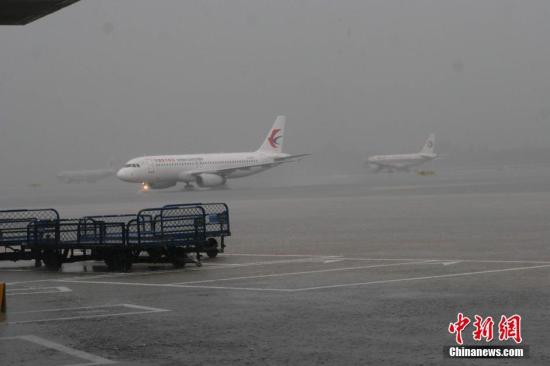BEIJING, March 20 (Xinhua)-The website of the State Council Legislative Affairs Office announced today the "Rules for Safety and Security in Public Air Passenger Transport Flight" (full text). According to the working rules, nine types of disturbing behaviors of passengers on the plane, such as occupying seats, fighting, picking fights and using mobile phones illegally, will be stopped verbally, and control measures will be taken if the stop is invalid.
According to the working rules, the captain is responsible for the safety and security work in flight. The pilot-in-command requests passengers’ assistance when necessary when handling the disturbing or illegal interference on the aircraft; When there are acts that seriously endanger flight safety, such as disruptive behavior or illegal interference behavior, the original flight plan shall be changed or the aircraft shall be properly disposed according to the needs.
According to the working rules, crew members should deal with disruptive behavior and illegal interference according to the authorization of the captain. According to the handling procedure of the case (incident) on board, when the disturbance occurs, the crew members should stop it orally, and if the stop fails, control measures should be taken; In case of illegal interference, crew members shall take all necessary measures.

According to the explanation of the working rules, illegal interference refers to acts or attempted acts that endanger the safety of civil aviation, mainly including:
(1) Unlawful hijacking of aircraft;
(2) Destroying an aircraft in use;
(3) Taking hostages on board an aircraft or at an airport;
(4) Forcibly breaking into aircraft, airports or aviation facilities;
(5) Bringing weapons or dangerous devices or materials into an aircraft or airport for criminal purposes;
(6) Causing death, serious personal injury or serious damage to property or the environment by using an aircraft in use;
(7) spreading false information that endangers the safety of passengers, crew members, ground personnel or the public in aircraft, airports or civil aviation facilities in flight or on the ground.
Disruptive behavior refers to the behavior of not complying with the regulations at the civil airport or on the aircraft, or not following the instructions of the airport staff or crew members, thus disturbing the good order at the airport or on the aircraft.
Disturbance on the aircraft mainly includes:
(a) occupying seats and luggage racks;
(two) fighting, affray;
(three) illegal use of mobile phones or other prohibited electronic equipment;
(four) theft, intentional damage or unauthorized removal of life-saving articles and other aviation facilities and equipment or forced opening of emergency doors;
(five) smoking (including electronic cigarettes) and using kindling;
(six) obscene or sexual harassment of passengers in the cabin;
(seven) the dissemination of obscene articles and other illegally printed materials;
(eight) hinder the crew members to perform their duties;
(9) Other acts that disrupt the order on the aircraft.